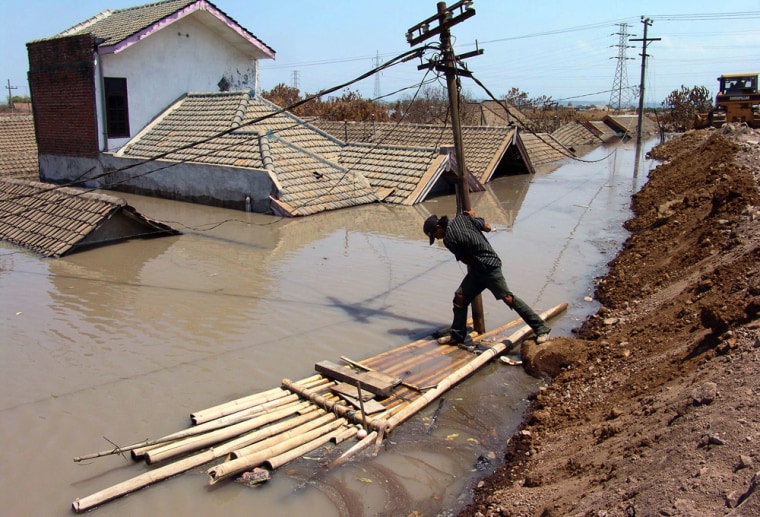Stopping and clearing up a massive mud flow at an Indonesian gas well will cost at least $180 million and the final bill may well rise higher, the company operating the well said Thursday.
The mud flow started after an accident occurred deep in a drilling shaft on the seismically charged island of Java four months ago. The mud now covers more than 1,100 acres, swallowing scores of homes and displacing 10,000 people.
Gas exploration company Lapindo Brantas is containing the mud with an ever-expanding network of dams, and pumping some of the mud to sea. The company is also digging relief wells alongside the torrent and plans to pour concrete down them to cap the flow, but most experts say this will not work.
In a statement, the company said total costs for stopping and clearing the mud up would reach $180 million, though said it might rise higher.
"With the flow continuing, the complexity of the event and the dynamic nature of the ongoing work, it is not possible to accurately estimate a total rectification cost at this time," the statement said.
Both Lapindo and its partners in the venture, including Australian oil and gas producer Santos Ltd, have said they are insured against losses incurred due to the disaster.
The mud is believed to come from a reservoir more than 3.5 miles underground that has been pressurized by tectonic activity or by the accumulation of hydrocarbon gases.
Police are planning to charge Lapindo with negligence over the disaster. The company has said that seismic activity may have caused the mud to break the surface.
Lapindo, which is linked to the superrich family of Indonesia's welfare minister, has paid for an ever expanding network of earthen dams to contain the mud, but many people here fear the resulting slimy ponds will overflow during the upcoming rainy season.
The sludge has repeatedly washed onto a major toll road, closing it for weeks at a time, and now it threatens a rail link just outside Surabaya, Indonesia's second largest city.
